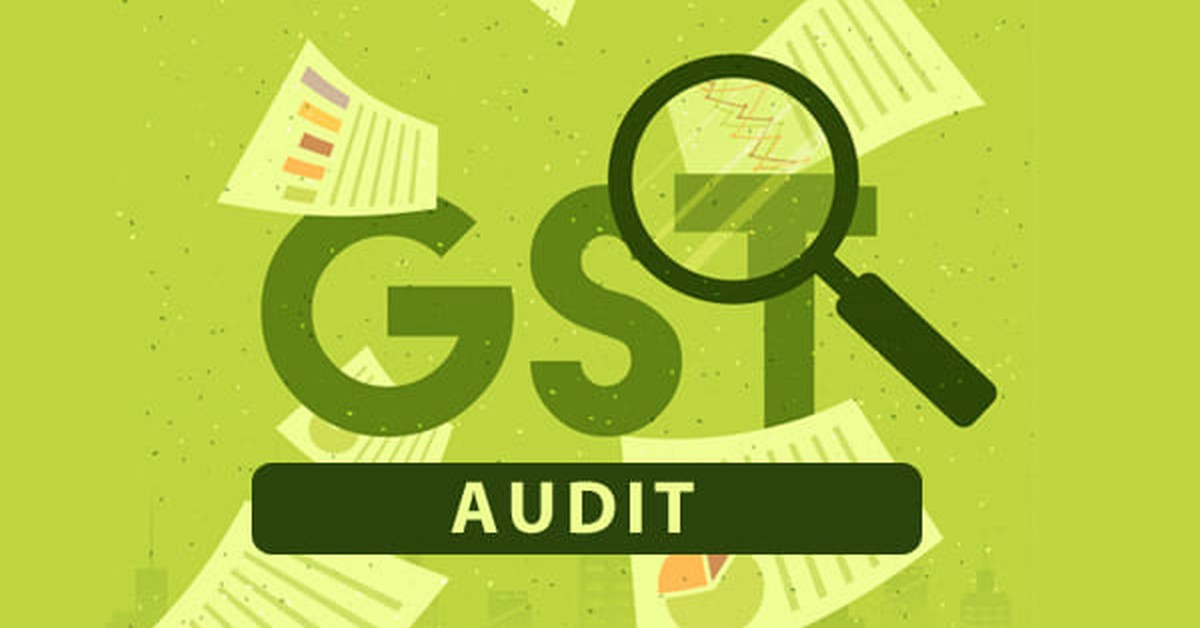Background
In the course of audit done by dept under section 65 of the CGST Act, certain issues/objections could be raised. The assesses have to carefully examine the matter, give their explanation.
While it is beingseen that majority of the objections raised at time of audit are not having any legal basis in law, and even if SCN be issued, would be bound to come in favour of assessee in due course at appeals stage.
However in first instance, during course of audit when objections are raised and the submissions done by auditee [could be advised by competent GST professional] with facts, legal grounds[applicable provisions of Act/rules] and supporting circulars/landmark decisions in writing/ to official mail id of concerned officer, it can lead to dropping points at that stage itself, avoidance of issuance of frivolous SCN's, and no ensuing demands with interest penalty and requirement of pre-deposit at appeals stage[10+20%] either.
In this article, the author has examined the common issues being raised at time of audit by department and the validity of the same under the law.

Common issues and its implications
1. Credit availed in GSTR 3B vs 2A/2B
The ITC cannot be denied merely due to the non-reflection of invoices in GSTR-2A/2Bwhen all the conditions specified under Section 16 of CGST Act, 2017 have been satisfied.
- GSTR-3B vs GSTR-2A/2B'reconciliation is not required from July 2017 upto 31.12.2021.'No such provision was there in GST law. It was inserted only wef 1.1.2022[ vide inserted section 16(2)(aa)wherein sets out that the invoice details are furnished by supplier in GSTR 1 and be communicated to recipient in 2B.''
- The input tax credit is an indefeasible and vested Right. Reliance can be placed in the case of'Shabnam Petrofils Private Limited vs. Union of India (2019) 29 G.S.T.L. 225 (Guj.), Eicher Motors Ltd. Vs UOI - 1999 (106) ELT 3 (SC), Dai Ichi Karkaria vs. UOI - 1999(112) ELT 353(SC).
- The facility of GSTR-2A is ONLY for assesses facilitation and credit cannot be denied merely because it is not reflected in GSTR 2A. Refer press release 18th October 2018.
2. Denial of credit due to non payment/short paymentof taxes by vendors
- It is near impossible to keep a track of the payment of tax by the supplier/vendor to the government under the existing scheme of returns as the tax is paid in GSTR-3B as the vendor pays the taxes by declaring it in a consolidated manner the principle of Lex Non-Cogit Ad Impossibilia i.e., The law does not compel a man to do that which he cannot possibly perform, as was held in the case of:
- Indian Seamless Steel & Alloys Ltd Vs UOI, 2003 (156) ELT 945 (Bom.)
- Hico Enterprises Vs CC, 2005 (189) ELT 135 (T-LB). Affirmed by SC in 2008 (228) ELT 161 (SC).
- Since the law cannot compel the taxpayers to comply with impossible conditions, whereby auditee does not have access to the portal to check whether supplier has actually paid or not.
- Even assuming that the taxes were not paid by vendors on the subject invoices issued, in paperwriter view, the substantial benefit of credit should not be denied due to the default [if any] by vendors. Further, the benefit of the input tax credit cannot be denied to a bona fide purchaser, because of the default of the selling dealer.
- Numerous decisions confirm such view in the case of Kay Kay Industries'(2013-TIOL-41-SC-CX). that the manufacturer cannot determine whether his supplier has discharged excise duty on the goods which are supplied to the manufacturer by him.
- The Hon'ble Supreme Court, in the case of'Commissioner of Trade & Taxes, Delhi and others Vs. Arise India Limited'and others [TS-2-SC-2018-VAT]. The Hon'ble High Court of Delhi held Section 9(2)(g) of Delhi VAT Act to the extent it disallows Input tax credit(“ITC”) to the purchaser due to default of selling dealer in depositing tax, as violative of Articles 14 and 19(1)(g) of the Constitution of India.
- Held D.Y Beathel Enterprises Vs The State tax Officer (Data Cell) [2021-TIOL-890-HC-MAD-GST] if the default is made by non-payment of tax by the seller, the recovery shall be made from the seller.
3. Denial of credit due to cancelled registration of vendors
ITC cannot be denied for the valid transactions.If it is found upon considering the relevant documents that all the purchases and transactions in question are genuine and supported by valid documents and transactions were made before the cancellation of registration of those suppliers than the benefit of input tax credit shall be given to the recipients. Held in LGW Industries'Ltd and Ors vs UOI'[2021-TIOL-2308-HC-KOL-GST]'
4. Denial of credit alleging blocked u/s 17(5)
Air travel/hotel accommodation: The ITC is eligible when nexus is established usage in course of business of auditee, it cannot be denied. Not personal consumption.
CCE vs Fine Care Biosystems (2009 (244) ELT 372 (CESTAT) and Goodluck Steel Tubes Ltd. Vs C. C. Ex., Noida 2013 (32) S.T.R. 123 (Tri. - Del.) ITC on air ticket service charges is eligible when air travel performed for purpose of company business.
Hotel accommodation eligible- One Advertising & Communication Services Ltd. vs C.S.T., Ahmedabad (2012 (27) S.T.R. 344 (Tri. - Ahmd.).
ITC availed on Sales promotion vs gifts: Credit on goods given as gifts is blocked.A 'gift' is commonly defined as a voluntary transfer of property by one to another, without any consideration or compensation therefor.
The Supreme Court cited the definition of 'gift' from Corpus Juris Secundum, Volume 38 in the case of Sonia Bhatia v. State of UP [1981] 2 SCC 585.
When goods such as TV/fridge are given for sales promotion, there is corresponding obligation on the dealers/distributors to lift more goods[more sales and discharge of GST on such outward supplies].
Also when goods are given under schemes such as buy 1 get 1, the value of the so called “freebie” would in normal business course be included in/factored in pricing of the goods being sold[embedded in price], and on which GST is being suffered.
This reasoning is supported in circular 92/11/2019-GST dated 07.03.2019
Consequently, the ITC need not be reversed on business promotion expenses.
Credit related to immoveable property vs moveables or plant and machinery: Section 17(5)(d) restriction is specifically relating to the goods/services used for constructing immovable property, capitalized to immoveable property block meant for self use, and there isno intention of denying credit on the moveable property and plant machinery specifically in Section 17(5). Also there is no restriction to avail credit on the goods/services used for construction of immoveable property but written off to P&L.
The ITC on moveable goods is eligible- such as office equipment could be computers, projectors, stablisers; Electrical fittings such as fan; furniture; furnishings; security systems; fire fighting systems cannot be denied, even if capitalized to immoveable property block as long as supported by valid vendor tax invoices clearly setting out the nature of the inwards supply done to the auditee.
Goods which can be disassembled/dismantled and could be used in other premises without causing any damage to the property, are said to be movable goods. Similarly held in the case of Sirpur Paper Mills'[1998 (97) E.L.T. 3 (S.C.)],'
Similarly credit cannot be denied on plant and machinery, even when it is immoveable. Examples could be credit on HVAC system, Lifts/sewage treatment plant.
Note: Section 3(26) of the General Clauses Act, 1897 defines "Immovable Property" to include land, benefits to arise out of the land, and things attached to the earth, or permanently fastened to anything attached to the earth.
Immoveable property means the goods which once fixed to earth cannot be moved/removed without substantial damage.
Personal use/consumption or for official use: Credit is eligible on employee-related expenses, as long as it is incurred in course of discharge of office duties/functions. Examples could be uniforms, ID cards, safety helmets, hand sanitisers, mobile phone for official purpose.
In Steel Authority Of India Ltd vs. CCE (2014 (301) ELT 592 (CESTAT Delhi) credit on shoes used by workers in the Steel plant held eligible
In Indian Rayon & Industries Ltd.vs. Commr of C. Ex., Bhavnagar (2006 (4) S.T.R. 79 (Tri. - Mumbai) held that the tax paid on mobile phone is available as credit to eligible service providers of output service and manufacturers in absence of any express prohibition under CCR.
On a related note, ITC is eligible on canteen facility even though consumed by person, when it is mandatory for employer to provide facility under law for time being in force[vide amendment made wef February 2019]. Example canteen facility provided under Factories Act is eligible credit and cannot be denied citing personal consumption.
5. Non payment of Reverse charge liability under section 9(3) r/w notification 13/2017-CT(R); Section 9(4)
RCM on GTO vs GTA: When the transporter of goods by road service issues a consignment note/LR then it would be covered as GTA service. Tax liability to be paid by registered recipient.' Credit can be availed to extent used to make taxable supplies.
When consignment note is not issued, can consider not as GTA but GTO, GST exemption is there, and not liable to pay tax under RCM.
Post 18.7.2022:' GST need not be paid under RCM on GTA service when the vendor has opted to discharge tax liability under forward charge[FCM].
RCM on import of services: All payments made to foreign vendors towards services supplied to Indian recipient entity are not liable to tax as import of services under reverse charge. First need to determine what is place of supply[POS], within or outside India vide section 13(2) to (13) of IGST Act.
Few examples could be: Place of supply of training done in physical presence outside India, accommodation/food consumed outside, travel done outside India, services performed physically on goods outside India, transport of goods destination outside India, Trade event/exhibition in Germany- All instances where POS outside India-no RCM.
RCM on holding share capitalin Indian subsidiary as supply of service:This is a frivolous objection being raised. There cannot be levy of GST on investment in securities which'is'neither good nor service. Hence, it cannot be treated as a supply under any provision of the GST Act including under Section 7(1)(c)-import of services from related persons, and as a result, the levy itself fails.
RCM on director remuneration: GST is not leviable when the director is employee and paid remuneration as services by employee to employer in course of employment covered in Entry 1 Schedule III neither supply of goods nor services. Circular 140/10/2020 - GSTcan be referred.
Company not liable to pay tax under RCM on rent paid to Directors in their Individual Capacity.Cords Cable Industries Limited Vs Commissioner, Central Excise (CESTAT Delhi). Appeal Number : Service Tax Appeal No. 52207 of 2018 ST case.
RCM on development rights: Can be contended that it is benefit fromland, which is covered in Schedule III Entry 5 sale of land which is neither a supply of goods nor a supply of services. Consequently not taxable to GST. Dept may dispute as there is no exemption given in GST nor any judicial precedents in GST law in this regard as of date.
Note RCM on the DR was introduced only in respect of JDA entered post 1.4.2019, not prior to that dateand for earlier periods JDA's, RCM liability cannot be applied on promoter/Developer at all.
RCM being demanded on security services/renting of motor vehicle:GST under RCM was made applicable on the security services done by person[other than body corporate] to registered person wef 1.1.2019. Not taxable for period prior to that date.
Similarly for renting of motor vehicle done by person[other than body corporate] and not discharging tax at 12% where recipient is the body corporate, tax to be paid under RCM wef 1.1.2020. For period from 1.10.2019 till 31.1.22019 renting of motor vehicle done [other than by body corporate] and paying GST at 5% with ITC only in same line of business to recipient being body corporate was liable in hands of receiver under RCM.
Note: Prior to those dates of introduction of the levy u/s 9(3), no GST under RCM can be demanded for the above services.
Non payment of Reverse charge liability u/s 9(4) in respect of procurements done from unregistered suppliers: The levy was only for period of July 2017 till Oct 12th 2017. Thereafter in abeyance and then only for real estate developers post April 2019 onwards. View could be no intention of Govt to levy at all-has to be judicially tested.
Exemption when procurements not exceeding Rs.5000 per day[vide notification 8/2017-CT(R). When exceeding such limit, GST to be paid on procurements from unregistered persons towards taxable supplies.
Note: Even if GST were to be paid under RCM on procurements of specified services from unregistered suppliers[such as import of consulting services from abroad ]/unregistered supplier procurements on which there was valid liability, and such tax voluntarily paid now[even if paid during course of audit] ITC can be availed[even for past years of July 2017 onwards under self invoice of current date].
6. Demand of GST on deposits received'
Mere receipt of refundable deposits/deposits received, which are clearly disclosed under current liabilities cannot be alleged to be taxable to GST. Deposit is not taxable to GST until applied towards taxable supplies of goods/services by the supplier.[Refer proviso to definition of consideration Section 2(31)].
7. Short declared turnovers in 3B vs GSTR 9/3B vs sales register/GSTR 3B vs 1
Reasons for difference to be provided along with reconciliation statement to establish correctness of taxes paid.
8. Mismatch of GST paid under reverse charge and credit availed
Reasons for difference to be provided along with reconciliation statement of taxes paid and credit being availed.
9. Notice period Recovery/compensation for business loss/short lifted material /forfeited amounts due to cancelled service
There is no corresponding supply of goods/services in these cases levy fails. Circular 178/2022 has clarified on non taxability-circular binding on dept officers Dhiren Chemicals [2002 (143) ELT 19 (SC)]
10. Exports of service paid for in CFE treated as taxable to GST alleging POS is India
Agreement/SOWs would be paramount to establish nature of services. Proof of deliverables such as reports/emails submitted to foreign clients. This is more seen in alleging outsourced support services[POS as per section 13(2) location of foreign recipient client] to be intermediary services[taxable as POS vide section 13(8) of IGST Act is location of Indian supplier].
Plethora of favourable decisions are there in erstwhile ST laws and thereafter as well to support auditee.In Ohmi Industries Asia Pvt. Ltd. vs. Assistant Commissioner '[TS-128-HC(DEL)-2023-GST] HC: held assessee not 'intermediary' for provision of services to Japanese affiliate, allows IGST refund.
Conclusion
Where the stakes are high, the assessee is also suggested to consult with expert professionals in indirect taxes and GST, and based on their opinion, take a call to contest orpay voluntarily[wherever valid liability is there].
In order to avoid any surprises during audit, it is also suggested to get pre-audit done internally / externally by competent professional CA's. During pre-audit if any valid tax liability omitted/ unpaid found out [such as RCM on import of services/GTA services], discharge voluntarily with interest[to avoid penalty- if found in course of dept audit].
In this article the paper writer has given practical issues and the replies which if properly drafted could certainly help to avoid/reduce frivolous objections and relief by way of dropping of demands at the stage of audit itself[prior to SCN].
The author can also be reached at roopa@hnaindia.com







 CAclubindia
CAclubindia


